#uniatf
Text
Cracking the Code on NCDs: The Common Killer Explained

Non-communicable diseases (NCDs) are often referred to as the silent or quiet threat, as they do not always have immediate and obvious symptoms. However, these diseases are responsible for a large number of deaths worldwide, making them a common killer. In this blog post, we will delve into the world of NCDs and provide tips on how to avoid falling victim to these deadly illnesses. By cracking the code on NCDs, we can better understand and prevent this common killer from taking more lives.
Understanding Noncommunicable Diseases (NCDs): A Primer
Non-communicable Diseases (NCDs) are a growing concern in the world of healthcare. Unlike infectious diseases, NCDs are chronic and long-lasting, with no easy cure. These diseases, which include conditions like heart disease, diabetes, and cancer, are often caused by lifestyle factors such as smoking, poor diet, and lack of physical activity.
Understanding NCDs is essential in order to tackle this silent threat effectively. By learning about the risk factors and prevalence of these diseases, we can take steps towards prevention and control. Furthermore, understanding the impact of NCDs on global health allows us to advocate for policy changes and implement strategies to combat this common killer.
In the next sections, we will delve deeper into the world of NCDs, uncovering the hidden epidemic, identifying key risk factors, and exploring crucial steps towards prevention. Together, we can crack the code on NCDs and work towards a healthier future.
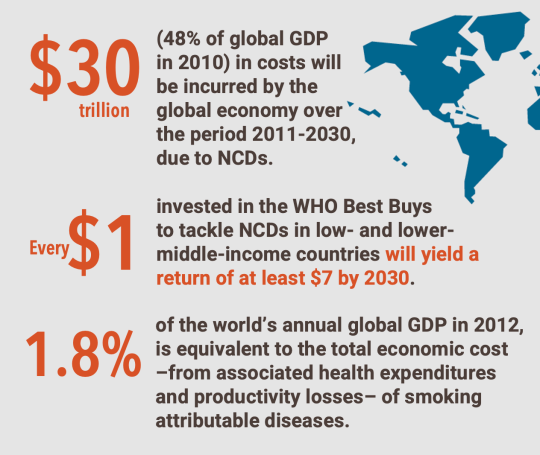
The Hidden Epidemic: Exploring the Quiet Threat of NCDs
Non-communicable diseases (NCDs) pose a hidden epidemic, silently taking lives across the globe. The danger lies in their deceptive nature, as they often don't display immediate symptoms, leading many to overlook their severity. This silent threat encompasses a range of chronic diseases such as heart disease, diabetes, and cancer, which are responsible for a significant number of deaths worldwide.
NCDs are fuelled by unhealthy lifestyle choices such as smoking, poor diet, and lack of physical activity. These risk factors, combined with a lack of awareness and early detection, make NCDs a major health concern. Understanding the hidden epidemic of NCDs is crucial in order to effectively combat them and prevent further damage.
In the following sections, we will dive deeper into the impact of NCDs, explore key risk factors, and discuss vital steps towards prevention and control. By shedding light on this quiet threat, we can work towards a healthier future for all.
Identifying Key Risk Factors and Prevalence
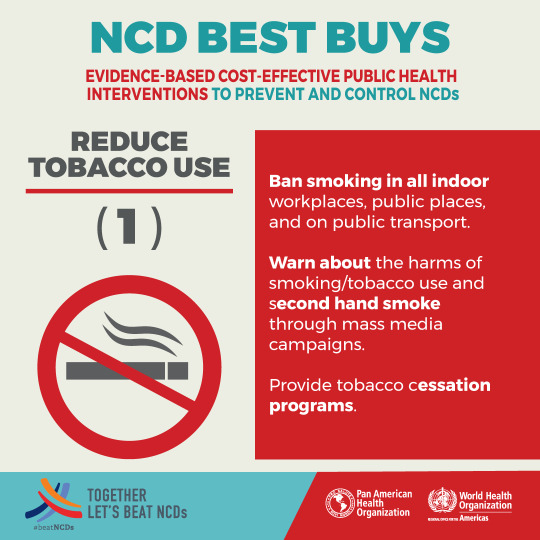
To effectively combat non-communicable diseases (NCDs), it is crucial to identify the key risk factors and understand their prevalence. These risk factors include smoking, poor diet, lack of physical activity, excessive alcohol consumption, and obesity. By examining the prevalence of these risk factors, we can better understand the extent of the problem and tailor prevention strategies accordingly.
Unfortunately, the prevalence of NCD risk factors is alarmingly high worldwide. For example, smoking remains a major risk factor for NCDs, with approximately 7 million deaths attributed to tobacco use each year. Additionally, unhealthy diets high in processed foods and sugar contribute to the rise in NCDs, especially in urban areas.
By identifying and addressing these key risk factors, we can take significant steps towards reducing the burden of NCDs and promoting a healthier society for all.
Unravelling the Impact of NCDs on Global Health
Non-communicable diseases (NCDs) have a profound impact on global health, affecting individuals, families, and entire communities. These diseases, including heart disease, diabetes, and cancer, are responsible for a significant number of deaths worldwide. The impact of NCDs goes beyond the physical toll, affecting mental and emotional well-being, and placing a burden on healthcare systems.
NCDs not only affect individuals but also have wider societal and economic consequences. The cost of treating NCDs is high, placing a strain on healthcare resources and limiting funding for other crucial areas. Furthermore, NCDs can hinder economic development by reducing productivity and increasing healthcare costs.
By unravelling the impact of NCDs on global health, we can advocate for increased awareness, policy changes, and resource allocation to effectively combat this common killer. Together, we can work towards a healthier future and reduce the burden of NCDs on individuals and communities worldwide.
Promoting Awareness and Early Detection
Promoting awareness and early detection is crucial in the fight against non-communicable diseases (NCDs). By educating individuals and communities about the risks and symptoms associated with NCDs, we can empower them to take proactive steps towards prevention and control. Simple actions such as regular health check-ups, self-examinations, and screenings can make a significant difference in early detection, leading to timely treatment and improved outcomes.
Additionally, raising awareness about the importance of adopting a healthy lifestyle, including regular exercise, a balanced diet, and tobacco cessation, can help reduce the risk of developing NCDs. It is essential to utilise various communication channels, such as social media, community outreach programmes, and healthcare campaigns, to reach a wide audience and promote the message of early detection and prevention. Together, we can empower individuals to take charge of their health and create a society that prioritises well-being
Crucial Steps Towards Prevention and Control
Now that we have a better understanding of non-communicable diseases (NCDs) and their impact, it's time to explore crucial steps towards prevention and control. Prevention is always better than cure, and when it comes to NCDs, it couldn't be more true. Here are some key steps you can take to protect yourself and your loved ones from falling victim to these silent killers.
Firstly, adopt a healthy lifestyle. This means incorporating regular exercise into your routine, maintaining a balanced diet rich in fruits and vegetables, and avoiding harmful habits like smoking and excessive alcohol consumption. By making these simple changes, you can significantly reduce your risk of developing NCDs.
Secondly, prioritise regular health check-ups and screenings. Early detection is key to successful treatment, so make sure to visit your healthcare provider regularly for routine check-ups and screenings. This can help detect any potential health issues early on and allow for timely intervention.
Lastly, raise awareness and educate others. Share your knowledge about NCDs with your friends, family, and community. By spreading awareness, you can help others make informed decisions about their health and take proactive steps towards prevention.
By following these crucial steps, we can take control of our health and work towards a future where NCDs are no longer a common killer. Remember, small changes can make a big difference. Start today and protect yourself and your loved ones from the silent threat of NCDs
The Way Forward: Policy Implications and Strategies for Combating NCDs
Moving forwards, addressing the challenge of non-communicable diseases (NCDs) requires a comprehensive approach involving policy implications and strategies for prevention and control. Firstly, governments need to prioritise NCDs on their agendas and allocate resources towards prevention, early detection, and treatment. This includes implementing policies to reduce tobacco and alcohol consumption, promoting healthier diets and physical activity, and ensuring access to affordable healthcare.
In addition, collaborations between governments, healthcare professionals, and community organisations are crucial. This involves establishing public health campaigns to raise awareness about NCDs, creating supportive environments for healthy behaviours, and providing education and resources to individuals and communities.
Furthermore, fostering partnerships with the private sector and engaging industries in creating healthier products and environments can also contribute to combating NCDs. By implementing these policy implications and strategies, we can work towards a future where NCDs no longer claim countless lives and where everyone has the opportunity to live a healthier and happier life.
#diabetes#cancer#cardiovascular disease#heart disease#chronic obstructed pulmonary disease#lung disease#ncds#noncommunicable diseases#tobacco control#physical activity#healthy diets#alcohol#world health organization#uniatf#united nations#non communicable diseases#hangoutsonair#hangouts on air#hoa#non-communicable disease (disease or medical condition)#global health#public health (medical specialty)
0 notes
Photo
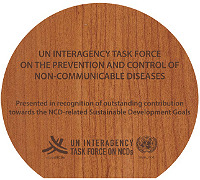
UNIATF Awards 2020 WHO Director-General Dr Tedros Adhanom Ghebreyesus announced the winners of the 2020 UN Inter-Agency Task Force on the Prevention and Control of Non-communicable Diseases (UNIATF) awards at the « Friends of the Task Force » UN General Assembly side event on 24 September 2020.
0 notes
Text
UNIATF Award: กรมอนามัย รับรางวัลผ่านผลงานเด่น “ผลักดันนโยบายภาษีเครื่องดื่มที่มีส่วนผสมของน้ำตาล”
กรมอนามัย กระทรวงสาธารณสุข รับรางวัล United Nations Inter-Agency Task Force (UNIATF Award) on the Prevention and Control of Non-communicable Diseases ในการประชุม side event ของการประชุมองค์การสหประชาชาติ ครั้งที่ 76
นายแพทย์สุวรรณชัย วัฒนายิ่งเจริญชัย อธิบดีกรมอนามัย กล่าวว่า กรมอนามัย กระทรวงสาธารณสุข ได้รับรางวัล United Nations Inter-Agency Task Force (UNIATF Award) on the Prevention and…

View On WordPress
0 notes
Photo
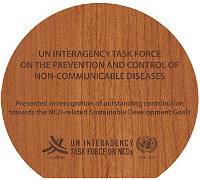
UNIATF Awards 2020https://www.newszada.com/wp-content/uploads/2020/09/2018-awards-200.jpg WHO Director-General Dr Te...https://www.newszada.com/uniatf-awards-2020/?feed_id=573561&_unique_id=5f97b988cf860
0 notes
Photo
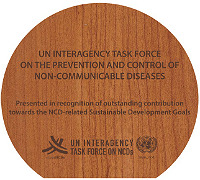
UNIATF Awards 2020 WHO Director-General Dr Tedros Adhanom Ghebreyesus announced the winners of the 2020 UN Inter-Agency Task Force on the Prevention and Control of Non-communicable Diseases (UNIATF) awards at the « Friends of the Task Force » UN General Assembly side event on 24 September 2020.
0 notes
Photo
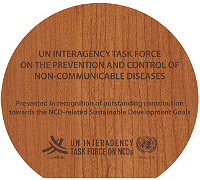
UNIATF Awards 2020 WHO Director-General Dr Tedros Adhanom Ghebreyesus announced the winners of the 2020 UN Inter-Agency Task Force on the Prevention and Control of Non-communicable Diseases (UNIATF) awards at the « Friends of the Task Force » UN General Assembly side event on 24 September 2020.
0 notes
Text
Kerala Wins UN Award For Control Of Non-Communicable Diseases
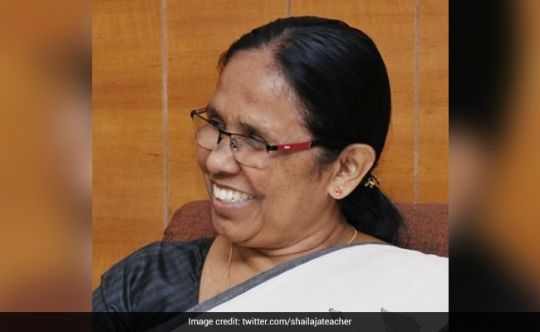
KK Shailaja said the award was a recognition of the tireless service of Kerala in the health sector.
Thiruvananthapuram:
Kerala has won a United Nations award on Thursday for its “outstanding contribution” towards the non-communicable diseases-related sustainable development goals.
The UN Interagency Task Force (UNIATF) award this year on prevention and control of non-communicable diseases was…
View On WordPress
0 notes
Text
DOH urged to reexamine proposed salt tax
#PHnews: DOH urged to reexamine proposed salt tax
MANILA -- A lawmaker at the House of Representatives on Monday said the Department of Health (DOH) should reexamine its plan to impose additional taxes on salty food products considering the vital role of salt in the Filipino diet.
Iloilo Rep. Janette Garin said that while it is laudable to push for a measure imposing taxes on food with high salt content for public health’s sake, such move to encourage Filipino families to buy healthier food options would quickly deplete the household budget.
“Salt, used moderately, aids our digestion and excretion. The unique identification of any Filipino household is marked with having a salt in our kitchen and eating tuyo, daing and bagoong to name a few,” said Garin, a former Health Secretary.
“We have to understand that many Filipinos do not have refrigerators in their houses, so essentially, they will buy salted fish to preserve it for the next few days,” she added.
The lawmaker noted that DOH's proposal would also have negative effects on the livelihoods of fishermen and their families, which would consequently make salty food less affordable.
If there is really a pressing need to address the excessive consumption of salt as a health issue, she said it is high time to revisit the implementation of Republic Act 8172, otherwise known as ASIN Law.
“RA 8172 was enacted to address the lack of micronutrients in the country, and after more than 20 years of its passage, a probe is necessary to discuss solutions that are relevant not just to health, but also in the preservation of culture and means of livelihood for those families who depend on the local salt industry,” she added.
Garin said the DOH should iron out the details if it wants additional taxes imposed for health reasons, noting that it should inspect if previous legislations on the utilization and use of excise taxes from alcohol and tobacco have translated into better health care for Filipinos.
“We should not only think of taxes. We should also assess whether taxes collected for health are really making a difference. We have seen the positive effects of increasing sin taxes only in terms of revenue, but what about for the health of our fellow countrymen?” she said.
“Our public health system must not be treated as a political tool but rather as a means to make every Filipino healthy,” she added.
Health Secretary Francisco Duque III earlier attributed the plan to increase the tax on salty foods to the decision to tax sugar-sweetened drinks to curb consumption and lessen sugar-related health issues.
United Nations Interagency Task Force (UNIATF) data show that a high intake of salty foods is among the reasons for the increase of non-communicable diseases like cancer, heart disease, and stroke.
In the Philippines, non-communicable diseases account for 68 percent of deaths.
UNIATF data reveal the average salt intake of Filipinos is about two times more than the two grams of sodium per day or about 5 grams recommended by the World Health Organization. (PNA)
***
References:
* Philippine News Agency. "DOH urged to reexamine proposed salt tax." Philippine News Agency. https://www.pna.gov.ph/articles/1084950 (accessed November 05, 2019 at 12:10AM UTC+14).
* Philippine News Agency. "DOH urged to reexamine proposed salt tax." Archive Today. https://archive.ph/?run=1&url=https://www.pna.gov.ph/articles/1084950 (archived).
0 notes
Text
व्यक्ती विशेष - मनोज झालानी
व्यक्ती विशेष – मनोज झालानी
भारतीय आरोग्य व कुटुंब कल्याण मंत्रालयाचे अतिरिक्त सचिव आणि अभियान संचालक (NHM) मनोज झालानी यांना प्रतिष्ठित ‘संयुक्त राष्ट्रसंघ आंतर-विभागीय कृतीदल (UN Interagency Task Force -UNIATF) पुरस���कार’ प्रदान केला जाणार आहे.
असंसर्गजन्य रोगांच्या (NCDs) प्रतिबंध आणि नियंत्रणात आणि संबंधित शाश्वत विकास उद्दिष्टे साध्य करण्यामध्ये उत्कृष्ट योगदान दिल्याबद्दल हा पुरस्कार दिला जाणार आहे.
27 सप्टेंबरला…
View On WordPress
0 notes
Photo
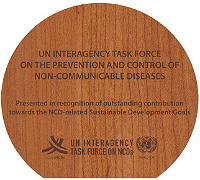
UNIATF Awards 2020 WHO Director-General Dr Tedros Adhanom Ghebreyesus announced the winners of the 2020 UN Inter-Agency Task Force on the Prevention and Control of Non-communicable Diseases (UNIATF) awards at the « Friends of the Task Force » UN General Assembly side event on 24 September 2020.
0 notes
Text
DOF execs not yet briefed on plan to hike tax on salty foods
#PHnews: DOF execs not yet briefed on plan to hike tax on salty foods
MANILA -- Finance officials have yet to meet with health officials regarding the plan to slap additional taxes on salty food products.
“(We) have to discuss thoroughly with them,” Finance Secretary Carlos Dominguez III told journalist in a text message Friday.
Health Secretary Francisco Duque III earlier attributed the plan to increase tax on salty foods to the decision to tax sugar-sweetened drinks to curb consumption and lessen sugar-related health issues.
United Nations Interagency Task Force (UNIATF) data show that high intake of salty foods is among the reasons for the increase of non-communicable diseases like cancer, heart disease and stroke.
In the Philippines, non-communicable diseases account for 68 percent of deaths.
UNIATF data show that the average salt intake of Filipinos is about two times more than the two grams of sodium per day or about 5 grams recommended by the World Health Organization (WHO).
The current administration has successfully pushed for slapping tax on sugar-sweetened beverages and the increase of taxes on sin products to address the rising cases of poor Filipinos and the youth who got sick because of the consumption of these products. (PNA)
***
References:
* Philippine News Agency. "DOF execs not yet briefed on plan to hike tax on salty foods." Philippine News Agency. https://www.pna.gov.ph/articles/1084797 (accessed November 01, 2019 at 11:39PM UTC+14).
* Philippine News Agency. "DOF execs not yet briefed on plan to hike tax on salty foods." Archive Today. https://archive.ph/?run=1&url=https://www.pna.gov.ph/articles/1084797 (archived).
0 notes